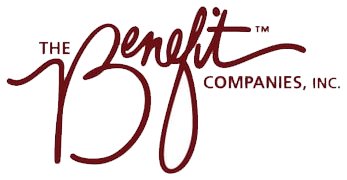
What is Media Liability Insurance?
Media liability insurance is a type of business insurance that protects firms from financial losses resulting from media-related lawsuits. This insurance specifically covers the costs of legal defense, settlements, and judgments relating to alleged defamation, copyright infringement, invasion of privacy, or other forms of media liability claims.
This insurance policy may assist businesses that create or exchange media content, such as publishers, broadcasters, advertisers, and social media influencers. It is designed to help companies mitigate the risks of media-related lawsuits and provide peace of mind in the case of a legal dispute.






Which Small Businesses Need Media Liability Insurance?
- Digital content producers: including videos, podcasts, or blogs
- Broadcasters: including radio or television broadcasts
- Advertisers: including businesses who run ad campaigns for themselves or their clients
- Social media influencers: including a business’s promotion of its brand or products
- Publishers: including books, magazines, newspapers, or other forms of written media
Types of Media Liability Claims Covered
| Media Liability Claim Type | Definition |
|---|---|
| Defamation | A false statement that harms a person's reputation |
| Copyright Infringement | Unauthorized use of a copyrighted work |
| Trademark Infringement | Unauthorized use of a trademarked name, logo, or slogan |
| Invasion of Privacy | Invasion of someone's private life without consent, such as publishing private facts or intrusion into seclusion |
| False Advertising | Advertising that is misleading, false, or deceptive |
| Product Disparagement | Making false or disparaging statements about a competitor's product or service |
| Intellectual Property Infringement | Unauthorized use of a patented invention, trade secret, or other intellectual property |
Benefits of Media Liability Insurance for Small Businesses
Media liability insurance isn’t just for larger companies. This type of business insurance also offers several key benefits to small businesses, including financial protection, reputation protection, and legal assistance in the event a claim is filed. It can offer a company peace of mind knowing their created content online is covered, promoting greater stability.
Financial Protection
Media liability insurance can provide financial protection in the event of media-related lawsuits, such as legal defense costs, settlements, or judgments.
Reputation Protection
Media liability insurance can also provide reputation protection by covering the costs of public relations efforts to repair damage to a business's image.
Legal Assistance
Media liability insurance policies can be tailored to a business's specific needs, ensuring they have the right level of coverage.
Factors to Consider When Choosing Media Liability Insurance Coverage
| Factors | Description |
|---|---|
| Industry | The type of industry you're in can affect the types of risks you face and the level of coverage you need. |
| Coverage Limits | The maximum amount that the insurance policy will pay out for a covered claim. |
| Deductibles | The amount that the policyholder must pay before the insurance policy kicks in. Higher deductibles can result in lower premiums. |
| Exclusions | The types of claims or situations that are not covered by the insurance policy. |
| Policy Terms | The length of the policy and the payment schedule. |
| Carrier Reputation | The reputation of the insurance carrier in the industry and its financial stability. |
| Legal Expertise | The availability of legal expertise and support in the event of a media-related lawsuit. |
| Premiums | The cost of the insurance policy, which can vary based on factors such as coverage limits, deductibles, and industry. |
How Small Businesses Can Get Media Liability Insurance Coverage
Acquiring media liability insurance for your small business is a simple process.
- Identify reputable insurance carriers that offer this type of coverage.
- Request a quote for the coverage limits and deductibles that meet your needs.
- Once you have selected a policy, complete the application and provide any additional documentation requested by the insurance carrier.
- The policy will be underwritten and issued based on your provided information.
Thankfully, finding a reputable insurance carrier for media liability insurance is easier than you think. Connect & Simplify through casualty insurance broker BenePac is a broker of business insurance plans, including media liability insurance. With media liability insurance in place, small businesses can have peace of mind knowing they are protected from media-related risks.
Contact us to get the process started by requesting a free quote.

Don't Have a Retirement Plan At Your Company?
How Your Wisconsin Business Can Offer Employee Retirement Plans
This podcast was recorded at Connect & Simplify™ HQ in Brookfield, Wisconsin. We help hundreds of businesses in Milwaukee, Madison, Green Bay and other state-wide cities with their employee retirement plans. For many businesses with 50-250 employees, Connect & Simplify™ is a profitable or more effective alternative to full-time employees dedicating all or some of their time to managing the chaotic and complex problems of employee retirement plans. Contact us for a FREE consultation.
Wisconsin Retirement Benefits Company Explains Offering 401(K) Plans
There are more benefits to offering employee retirement plans at your company than you might think. Employee 401(K) plans can effectively attract and retain top talent and improve employee satisfaction. Retirement plans can also help owners take advantage of tax savings to potentially make the cost of offering a 401(K) for your employees FREE!! Retirement plans have become an expectation of employees in today’s job market. We often find many Wisconsin small businesses are unaware of how easy it is to offer employee benefits packages.
Listen as Roger Fuerstenau sits down with our newest teammate, Paul Dowd, CIMA®, AIF® to discuss offering employee retirement plans. Hear why your Wisconsin small business should have a retirement plan if you don’t already have one. When is the right time to add one? Do you want to keep top employees? What are some of the benefits? Get the answers to these questions and more by tuning in to this week’s episode.
Outline:
- Why you should consider offering retirement plans for employees.
- Why you haven’t considered offering retirement plans because of cost.
- What benefits do retirement plans bring employees.
- What benefits do employers receive for offering employee retirement plans.
- How 401(K) plans help attract and attain important employees.
- How small businesses can save more in personal taxes than it costs to run their retirement plans AND receive tax credits just for starting one.
- How employers can get tax-deferred treatment on a large sum of their income.
- Why the costs of offering retirement plans have decreased in the last 5 years.
- Why the beginning of January could be the best time to roll out retirement plans.
- How you as an employer can start offering retirement plans to your employees.
- How much time is required to start offering employee retirement plans at your company.
- What Wisconsin companies have said about beginning to offer 401(K) retirement plans.
- How employers could defer $200,000 a year for offering employee retirement plans.
- How employers can offload the stress of managing employee retirement plans by hiring a benefits company.


 Payroll Client Access
Payroll Client Access